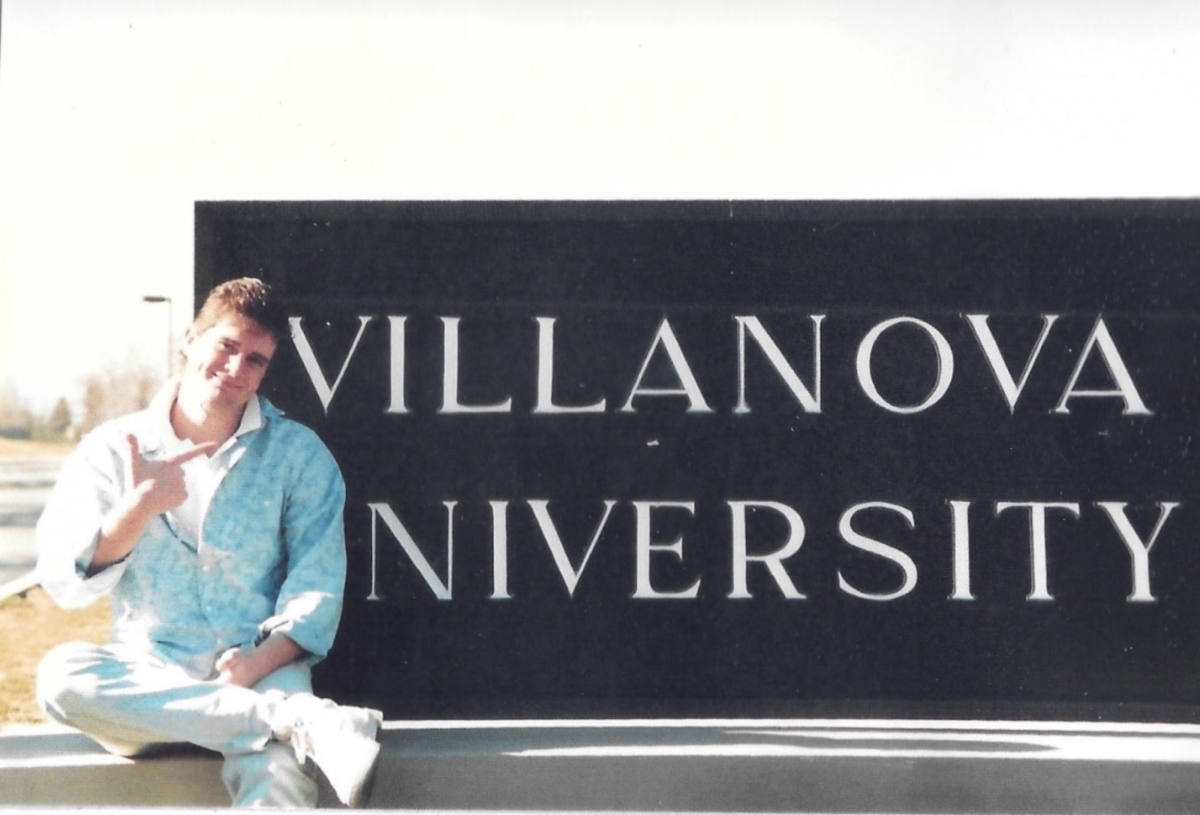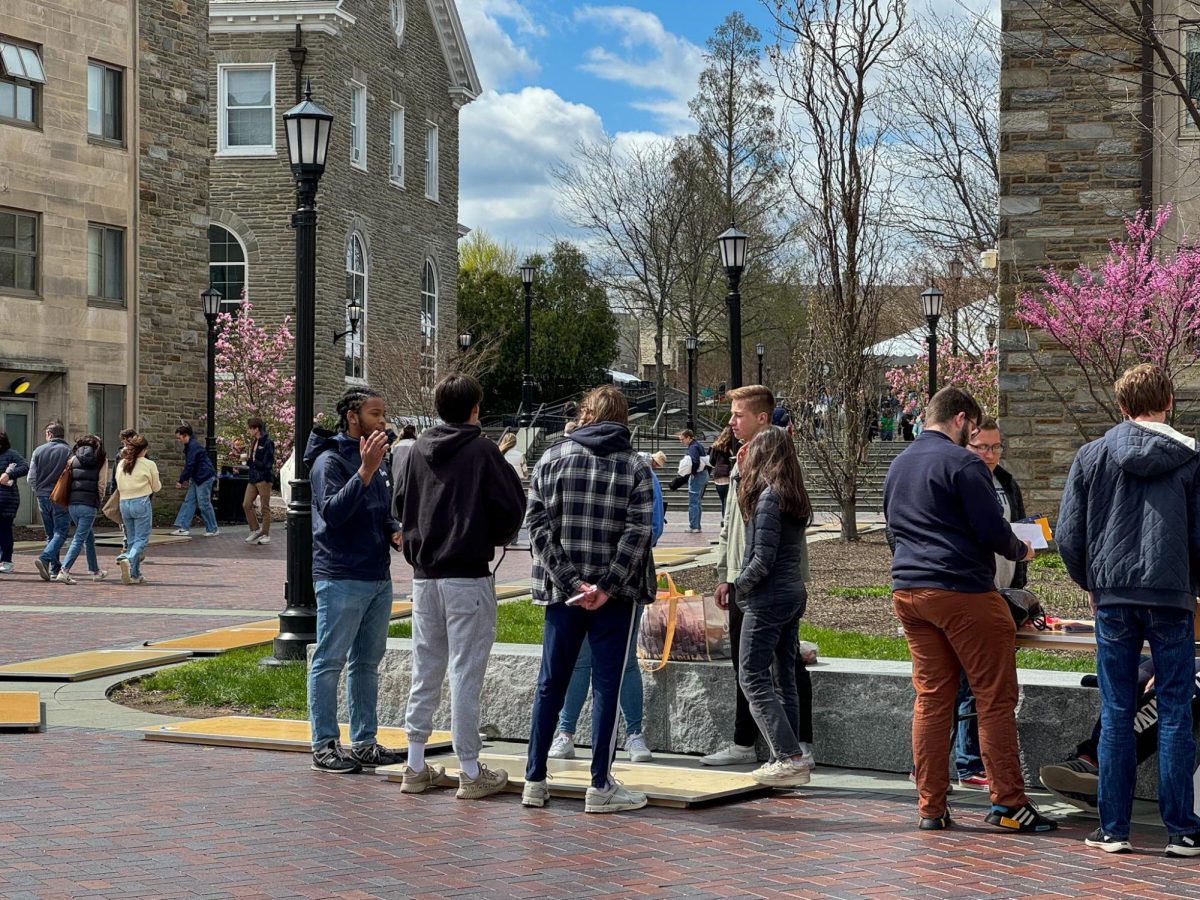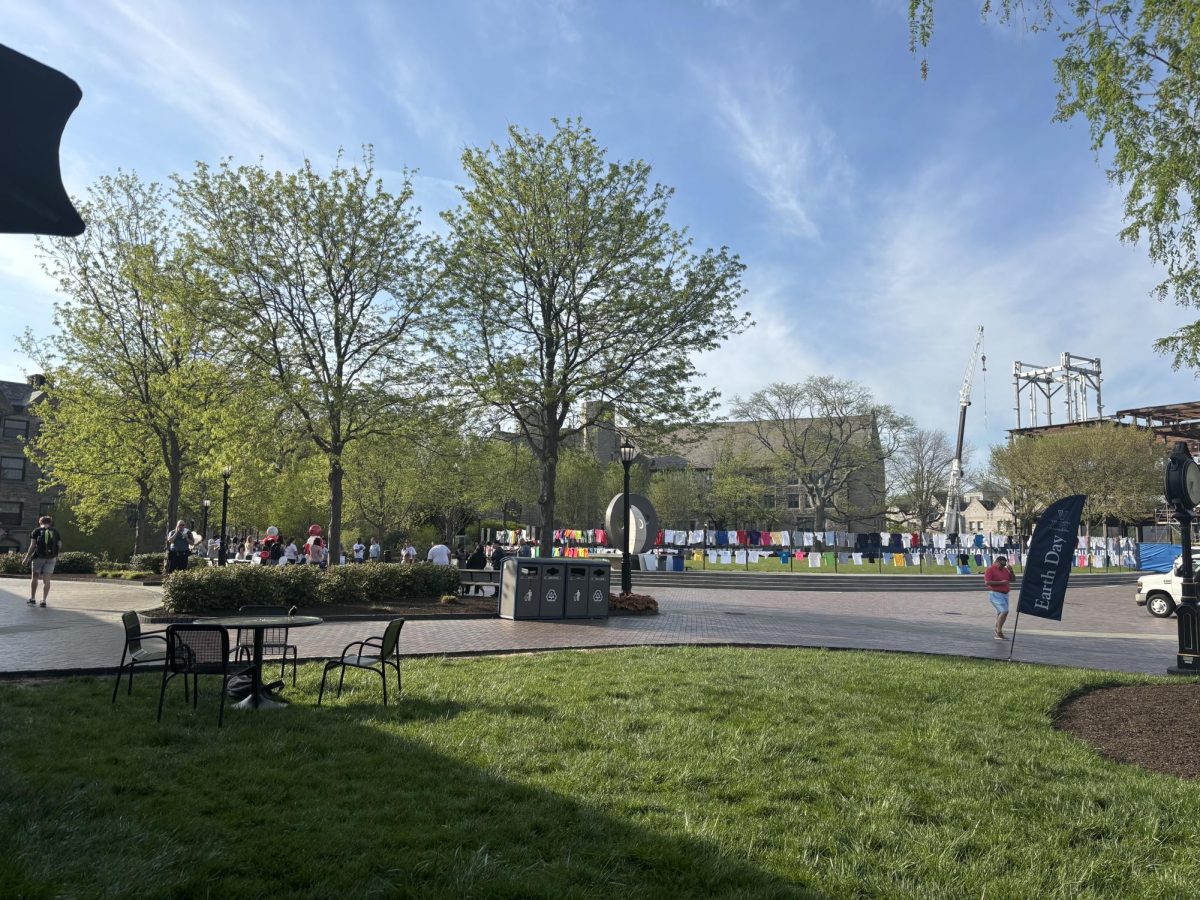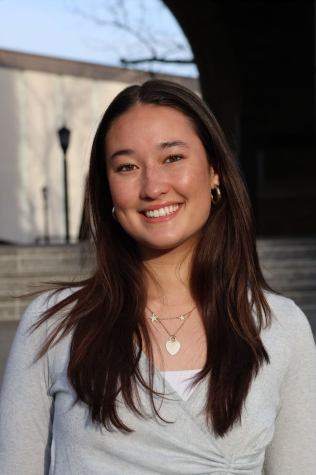“No good deed goes unpunished, right?” Kevin Kiernan said, laughing in disbelief as he shook his head and began to recount his story. It is a phrase instilled in us from childhood, sarcastically reminding us that performing an act of kindness, while seemingly benevolent and pure, can often backfire in bizarre ways.
This saying perfectly encapsulates what happened when Villanova Class of ’88 alumnus Kevin Kiernan donated his kidney to the mother of his close family friend, whom he met while at Villanova. After performing this selfless, courageous act, Kiernan began experiencing major health issues that set his family on a rare and unexpected journey lined with challenges and setbacks.
By saving her life, he nearly lost his.
Kiernan is a Villanova Basketball front-row fan, a former member of the Villanova football team and a Special Olympics volunteer. A proud Villanovan in every sense. He is also a universal donor. His O-negative blood type allowed him to work with NYU Langone in secret for months to prepare for his donation surgery that took place on Jan. 9, 2023.
“She needed something I had and no one else matched,” Kiernan said, “I felt responsible for her at that moment. God knew I could save her.”
While the family friend instantly began improving post-surgery, Kiernan noticed abdominal pain not long after regaining consciousness from surgery. He was discharged two days later from NYU Langone, but he knew that something had gone wrong.
“No one expected this,” Kiernan said, “We went into this thinking that it would be a few days in the hospital and then a few weeks at home.”
However, two weeks later, when he returned to the NYU Langone Transplant Center after a follow-up call, he was sent to undergo a four-hour surgery for a hernia. Hernias after kidney removal are extremely rare, but Kiernan received treatment, and the surgeon implanted a mesh lining to keep the repair in place.
He recovered from the hernia surgery for a week at NYU before being discharged again, but only seven days after leaving the New York treatment center, he felt pain again.
His third surgery in less than a month, Kiernan was back on an NYU Langone operating table because he had developed a hematoma.
“It feels like everything that could possibly go wrong has gone wrong,” Kiernan said, “It’s so rare, it’s seriously insane.”
He is right. The National Library of Medicine has found in a study that fewer than three percent of living kidney donors experience serious complications post-surgery, and only about 10 to 20 percent face minor complications. The overwhelming majority of donors go back to their pre-surgery lives, returning only with a sense of altruism.
After the hematoma surgery, the complications still did not subside. Kiernan vomited and experienced pain every day, so he went to the NYU emergency department. By April, he had received five procedures to attempt to heal the various post-surgical issues that were persisting.
That same month, though, the biggest problem revealed itself: funding. The surgeries up to that point were being financed by NYU Langone, but in response to an email from Kiernan begging his doctor for answers about why he was still suffering after countless, unforeseen surgeries, his doctor informed him that it was her last day working at NYU and that her email was going to be deactivated.
In an even more shocking email four hours later, she told him that NYU would no longer be covering his medical expenses. His former doctor explained that “based on the workup he [did] at NYU, it does not appear that these symptoms are related to organ donation.”
“Any testing needed, or medications prescribed will need to be covered by [your] insurance, therefore [you] will be responsible for all copays,” she told Kiernan.
This news meant that every one of Kiernan’s future medical bills would have to be covered with money from his own pocket, or by his insurance, which his doctors knew he does not have, because he has not been able to work since before the surgery at the beginning of the year.
“What a way to escape,” Kiernan said of his doctor leaving the team at NYU. In the most painful period, he had no guidance and no plan.
What he does have is three kids who he must provide for, and he now has an incredible financial burden on top of the persistent infections and ceaseless discomfort.
“I did what I thought was right,” Kiernan said, “But my medical problems have consumed my whole life.”
While the saying does go, “no good deed goes unpunished,” Thomas Aquinas added in Summa Theologica that “no good deed is unrewarded, and so every good deed merits some good.”
Kiernan still sees the good. His son, Zachary Kiernan, set up a GoFundMe page that has raised nearly $16,000 in a month, and he is tremendously thankful and humbled by the way that his communities have rallied around him.
When asked to reflect on his decision, Kiernan, despite everything—changed relationships, financial struggles, health complications—has still not lost his compassion.
Without hesitation, he responded, saying, “I’d do it all again.”
You can donate to Kevin Kiernan’s GoFundMe page here.








